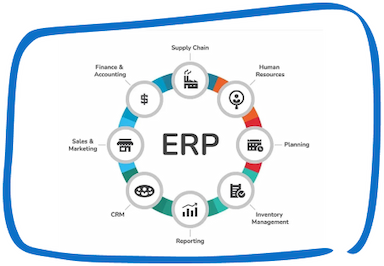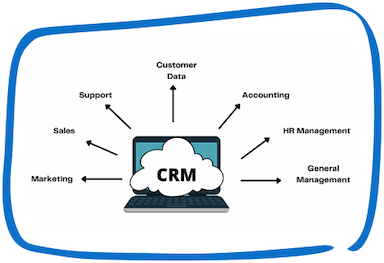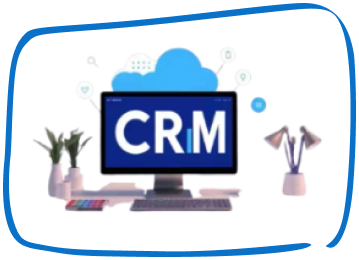It is possible to confuse a traditional cash register with a point-of-sale system. There are a few key differences between POS systems and cash registers, even though many cash registers are capable of accepting contactless payments. In this blog post, we’ll look at the differences between a POS system and a cash register and discuss how integrating Elate POS services into your business could lead to the perfect partnership.
What is a cash register?
A cash register is a standalone equipment that includes a receipt printer, adding machine, and cash box. To accept credit card payments, the majority of cash registers can be connected to credit card terminals and barcode scanners.
Depending on their price range, cash registers can do a variety of tasks, but most allow you to compute taxes, gratuities, and savings. In addition, they can conduct daily sales statistics, manage inventory, handle refunds, and establish connections with external hardware.
A register system might be sufficient for your company if its demands are restricted to processing payments, keeping track of cash, and producing invoices.
What is a POS system?
A point-of-sale system often called a point-of-sale cash register, comprises hardware and software for managing consumer payments, recording sales data, and managing inventory. POS systems can integrate numerous services, such as sales reporting and customer loyalty programs, to help businesses run smoothly.
Revolutionize Your Business with POS Solutions
Enhance your sales process, track inventory, and improve customer experiences with our customizable POS solutions. Ideal for businesses of all sizes, our system streamlines operations and boosts efficiency.
When retailers refer to “POS systems,” they typically mean traditional point-of-sale systems that they permanently place in designated checkout areas. There might be just one major terminal with an integrated computer at the main checkout counter.
Retailers occasionally set up POS systems in several checkout lines. Several people in certain industries, such as restaurants, can access a POS system at an order placement area.
Retailers are trying harder to satisfy consumer preferences and demands, such as “buy online, pick up in-store,” which has increased the popularity of point-of-sale (POS) systems.
Top 5 reasons a point of sale system is better than a cash register system
Point of sale (POS) systems are much more beneficial to business owners than standard cash register systems since they provide more features and benefits. Let’s now look at a couple of the benefits.
1. Reports with more specific information
POS systems are faster at storing and managing data than traditional cash registers. Managers and business owners can easily access vital reports from any lane or terminal. This is done from one central location, typically the back office. Point-of-sale systems provide the capability to swiftly obtain reports from any terminal. This gives you quick access to the most recent information on products, sales, time records, and other specifics.
2. Faster checkout times
By using POS systems and connecting a barcode scanner or scanner/scale to the system, a cashier can swiftly scan, edit, and complete a transaction. Compared to human entry, scanning can be up to 20 times faster. For instance, keypad entry takes six seconds for data with a typical UPC length of twelve characters. It takes 3 seconds to scan a bar code with 12 characters.
Just entering prices? Assume that your average price consists of four characters. Even yet, scanning is still around ten times quicker than human entry.
Additionally, POS systems make it simple to do voids, refunds, or no sales by just pressing a button. Role-based restrictions, like manager only, can be applied to these functions.
3. Improve accuracy
What if you could significantly lower the amount of mistakes made by people when manually entering sales data into a cash register system? Now consider how much more money you might have if there were fewer mistakes. A point-of-sale system excels in this situation.
One replacement error occurs for every 300 letters entered when typing by hand. Depending on the type of bar code, mistake rates can range from one substitution error every 15,000 to 36 trillion characters read.
Time lost rekeying data or failing to recognize incorrect prices can lead to significant expenses. These mistakes can quickly accumulate, potentially depriving the company or client of the appropriate sums.
Also, changing prices is simple. Prices are simply accessed with a simple scan or button push from a database. By altering the price of an item just once at the back office, you can use a POS system to update the price across all terminals. You can also print shelf labels with the updated price straight from the office with certain point-of-sale systems, doing away with the need to attach a price tag to every item.
4. enhanced inventory management
Comparing point-of-sale systems to classic cash register systems, you can track inventories considerably more precisely. A point-of-sale (POS) system can precisely track the number of things sold. Then, you can utilize this data to obtain comprehensive information on product movement as well as incredibly accurate inventory counts.
The majority of point-of-sale software enables you to track and count your inventory all in one place. Using a traditional cash register, you would have to manually enter sales data from the register into an application like Excel to calculate inventory counts and product movement. A point-of-sale system can automate the manual data input procedures.
Certain systems support various inventory procedures based on your business type. You typically find two forms: perpetual and periodic. Perpetual inventory allows real-time tracking of items in your store. Deduct the quantity scanned at checkout from the overall inventory. Count your inventory regularly, whether monthly, quarterly, or annually. This practice helps you monitor and compare it to sales data, providing insights into product movement. This is known as periodic inventory.
5. Easily expands to fit your company
POS systems, as opposed to conventional cash register systems, are easily scalable to match your company’s unique demands as it expands. There are plenty of modules, add-ons, and peripherals available to expand your system when specific needs emerge. Is it time to add another checkout? A POS system can easily be linked with additional lanes and terminals.
Own several stores or intend to open more in the future? With POS systems, you can conveniently oversee every one of your stores from your main office or a central location. To provide you complete control over your expanding company, generate insightful reports, and carry out item maintenance on any or all of your outlets from the corporate headquarters.
Boost Business Efficiency with POS Solutions
Simplify transactions, manage stock, and gain insights into your business performance with advanced POS solutions. Empower your team and improve customer satisfaction effortlessly.
Make Your Transactions Simpler by Reaching Out to Elate POS
Small businesses process payments daily. If not managed properly, retail cash management can become a serious issue. We can assist you at every step of the process. Whether you need improved inventory accuracy or better sales tracking, we can handle all your point-of-sale requirements.
Put an end to the conventional cash register and let Elate POS handle the labor so you can concentrate on what matters—the client. To begin using Elate POS for your company, request a free consultation for a customized POS plan!
Contact Us
Rated 4.9 based on 950+ reviews on Google




